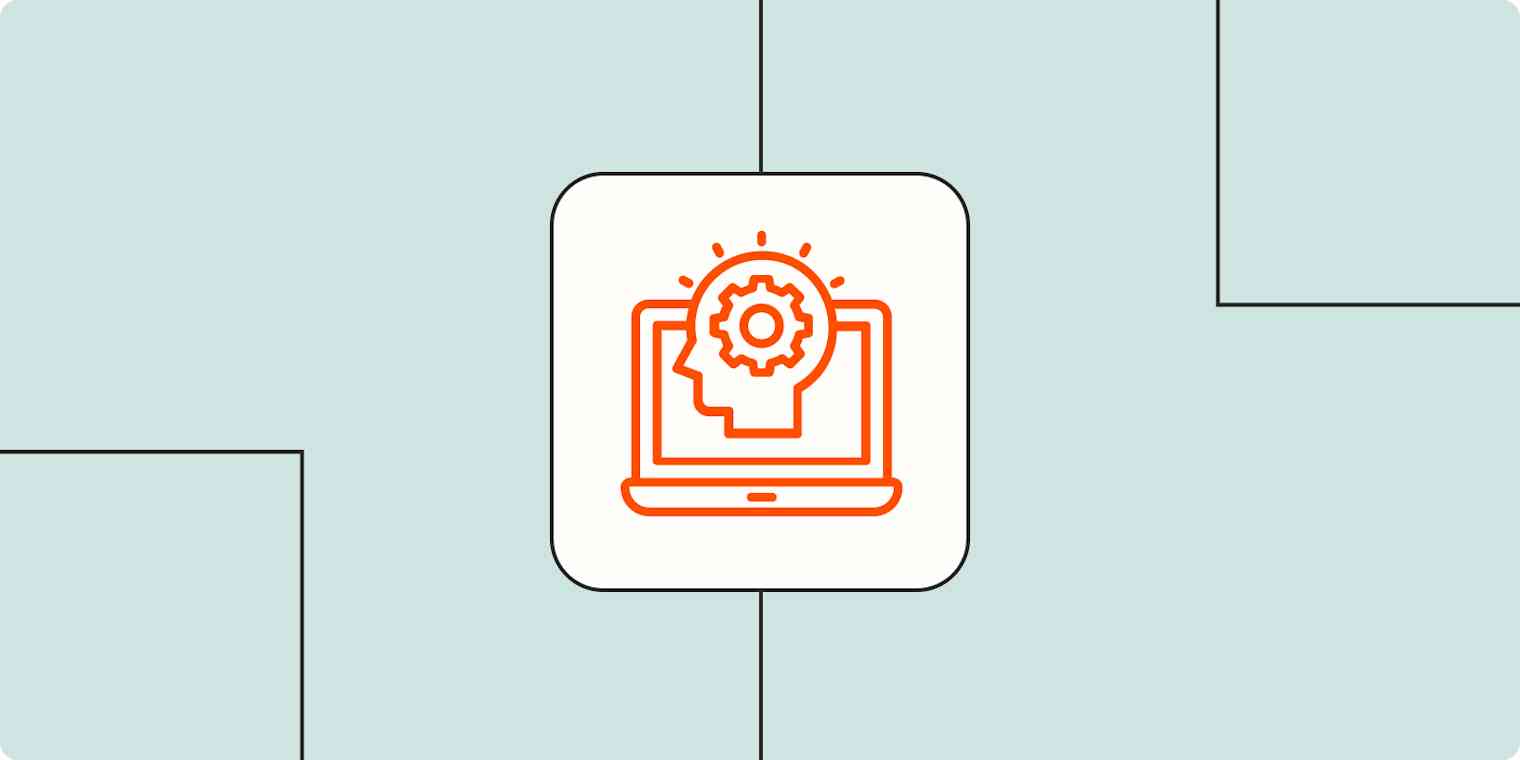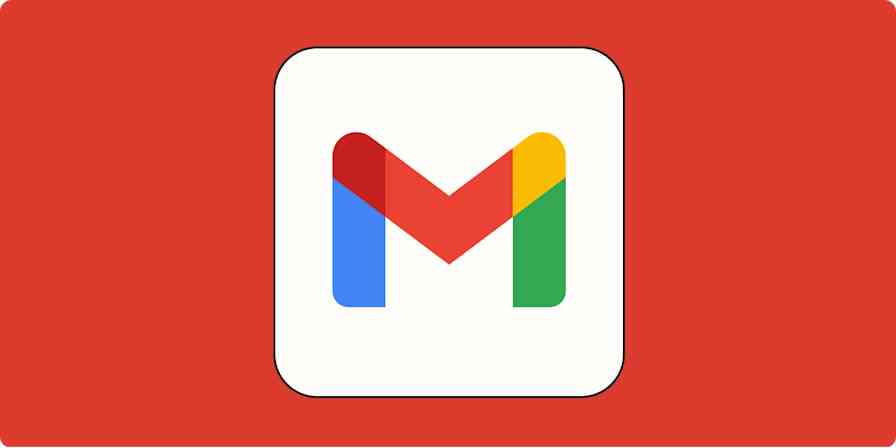When you think of AI agents, do you imagine a personal AI assistant like Tony Stark's Jarvis? Perhaps a calm-under-pressure TARS from Interstellar? Or, more on the scary spectrum, an amoral HAL 9000 straight out of 2001: A Space Odyssey?
Don't worry: current technology doesn't come close to that kind of science fiction—not yet. Right now, AI agents leverage large language models like GPT-3 to understand goals, generate tasks, and go about completing them. You can use them to automate work and outsource complex cognitive tasks, creating a team of robotic coworkers to support your human ones—11 a.m. chat by the watercooler optional.
This field is still very new, so there aren't too many viable commercial options to start creating your own AI agents quite yet. Keep it on your radar, though: everything is moving dizzyingly fast.
What are AI agents?
Right now, interacting with AI follows a familiar ritual. You enter a prompt, and the AI model calculates a response based on the input. Every time you want a new output, you have to provide a prompt. There's always a human to start the process.
AI agents work in a different way. They're designed to think and act independently. The only thing you have to provide is a goal—be that researching competitors or buying a pizza. They'll generate a task list and get to work, relying on feedback from the environment and their own internal monologue. It's as if the AI agents can prompt themselves, constantly evolving and adapting to achieve their objective in the best way possible.
When compared with mainstream automation—where you set up a range of triggers based on data or system states and configure what happens next—AI agents can work in unpredictable environments where there's a lot of new information. It's artificially intelligent automation.
AI agents can use computers extremely well, too. They can browse the web, use apps, read and write files, make payments with your credit card, and even control your laptop as they do so.
This marks one more step toward AGI (artificial general intelligence). We're getting closer to the moment when a machine is able to carry out the same kinds of tasks that humans can across any topic or area of specialization, with complete flexibility and superior performance.
Cue the doomsday letter.
How does an AI agent work?
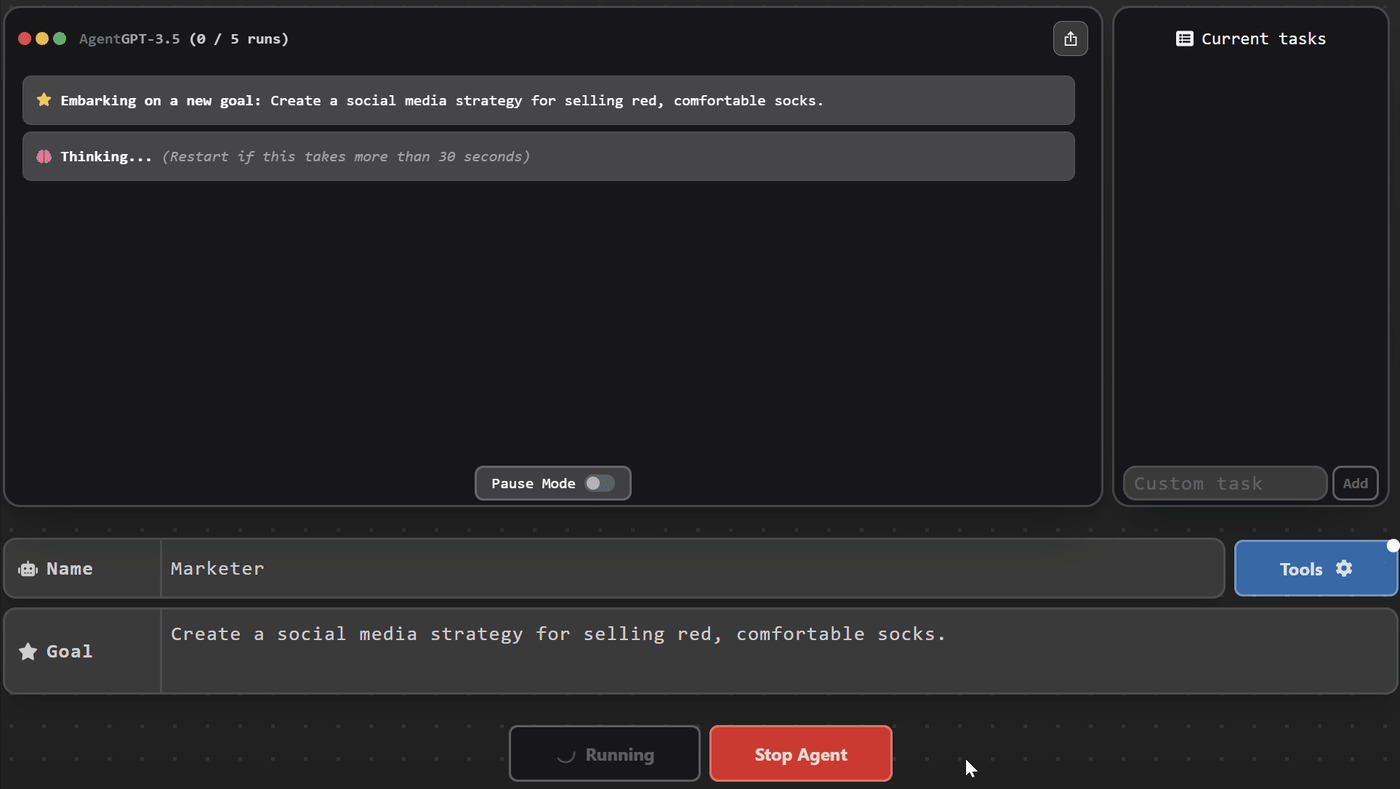
When you input your objective, the AI agent goes through goal initialization. It passes your prompt to the core LLM (the ones used now are GPT-3.5 and GPT-4), and returns the first output of its internal monologue, displaying that it understands what it needs to do.
The next step is creating a task list. Based on the goal, it'll generate a set of tasks and understand in which order it should complete them. Once it decides that it has a viable plan, it'll start searching for information.
Since the agent can use a computer the same way you do, it can gather information from the internet. I've also seen some agents that are able to connect with other AI models to outsource tasks and decisions, letting them access image generation, geographical data processing, or computer vision features.
All data is stored and managed by the agent, both so it can relay it back to you and so it can improve its strategy as it moves forward.
As tasks are crossed off the list, the agent assesses how far it still is from the goal by gathering feedback, both from external sources and from its internal monologue.
And until the goal is met, the agent will keep iterating, creating more tasks, gathering more information and feedback, and moving forward without pause.
This describes the general steps that a conventional AI agent can take to complete any goal. But depending on how developers set up their agents, the steps may be organized differently. This also only describes agents we use on our computers or on a software platform—there are other kinds of AI agents that we'll explore next.
Examples of AI agents in action
What do AI agents look like in action? Here are a few examples:
What happens in a virtual town with 25 AI agents? Stanford University and Google were curious, so they used OpenAI's API to create these virtual inhabitants and observe how they'd lead their lives. To support this experiment, the team created a platform for storing memories and the base prompt that gives purpose to each agent. From that point on, the AI agents were able to share information with one another, remember details about their relationships, and even plan a Valentine's Day party.
Self-driving cars are another example of AI agents, as they control a car to go from point A to B while staying on the road and respecting traffic rules. Depending on the development of self-driving systems, vehicles may cooperate with one another and with city infrastructure, integrating a multi-agent AI system.
As to the AI agents we can use in our computers, they're great for a wide range of tasks. Research is one of them. Since they can use your laptop the same way you do, you can task them with scouring the internet for information, organizing it in databases and files, digesting it into summaries, and checking in with you with results.
Looking to the future, it's easy to imagine a world of smaller human teams leveraging large AI agent teams to build more efficient companies. Humans will be at the helm of strategy and building relationships with other humans, while AI agents could automate everything else, possibly interfacing with other personal AI agents or AI agents from companies and government bodies.
There's a way to apply AI agents to nearly any task, at least where no higher-level strategic or creative functions are needed. Since they use LLMs to reason, they're limited to the capabilities of the model you're using. As these improve, AI may pick up on more nuance and understand more clearly the ins and outs of reaching a goal, making them suitable for more complex tasks in the future.
AI agents you can try right now
To show you this isn't a dream I had last night, I put together a short list of apps you can try out. These are all in very early development stage, so expect bugs and long-ish wait times along the way. Still, I'm sure you'll be able to feel the potential here.
General-purpose AI agent apps
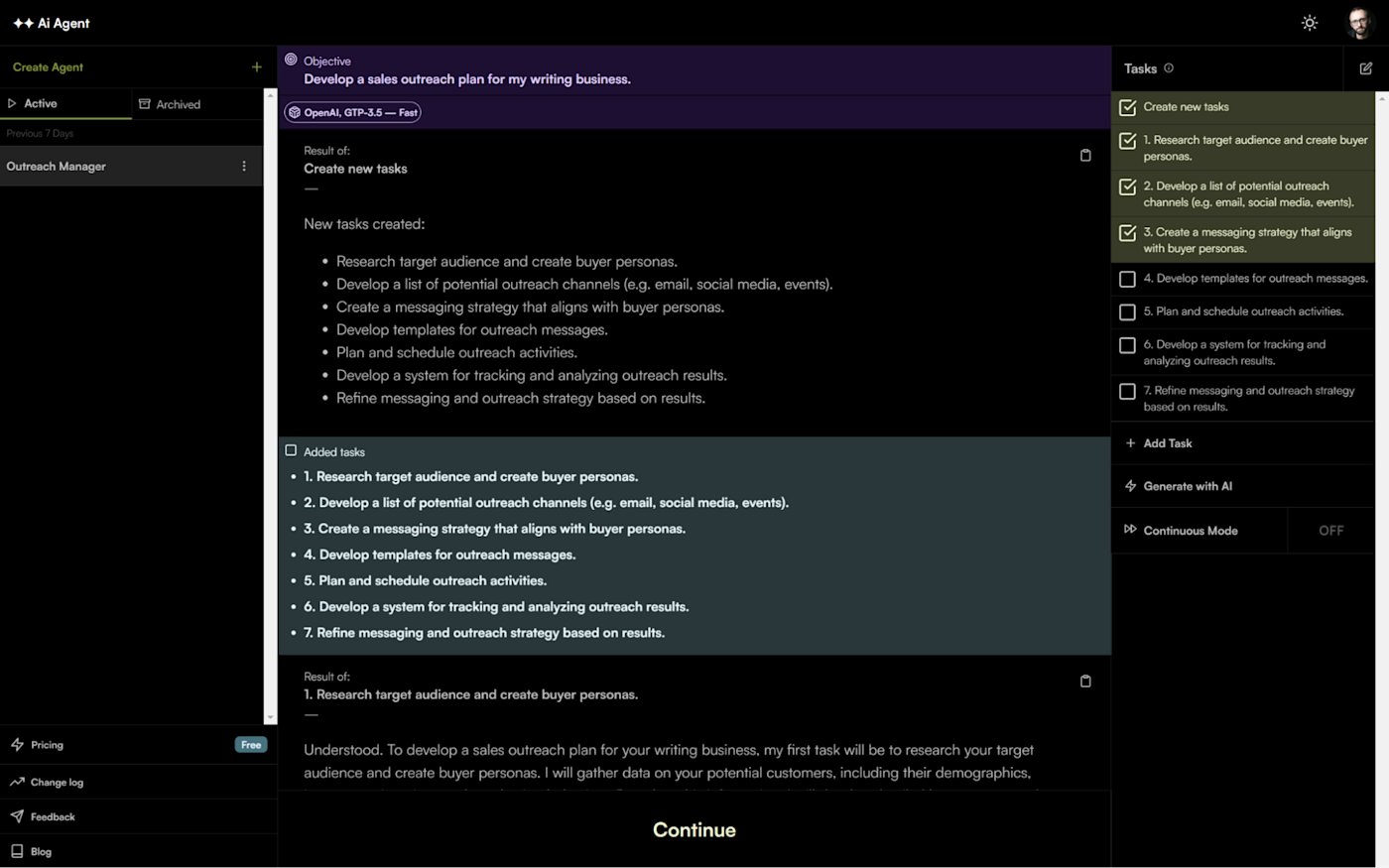
AI Agent is a flexible app that lets you create your own agents, by picking a name, an objective, and the AI model it should use (GPT-3.5 Turbo and GPT-4 are available right now). After it initializes the goal and creates the first task list, you can edit and add your own tasks. The visual workflow builder is coming soon. Give it time to complete each step: it can take more than 20 minutes to complete advanced tasks.
AgentGPT has the familiar layout of ChatGPT, letting you create and manage multiple AI agents. It's very intuitive and fast, but the results are inconsistent. There's also a library for developers, so you can implement your own spin on it.
HyperWrite Assistant is an AI agent that lives inside your Chrome browser. It's still in early development and on waitlist status, so we'll have to sit tight for the time being.
AI agent apps for online research
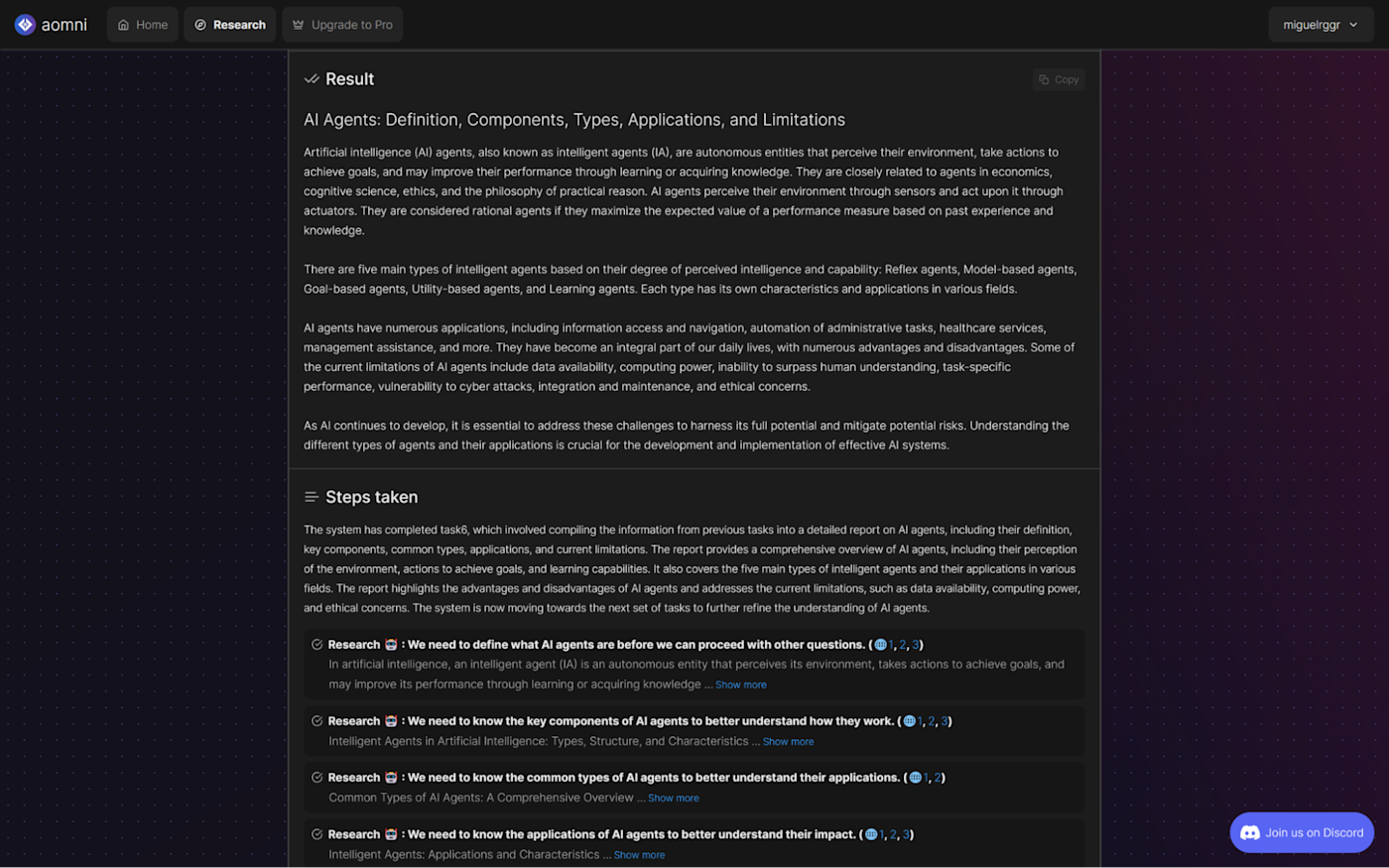
aomni is an AI agent that crawls the web looking for information on any topic you choose. It takes your goal, creates a task list, completes it one by one, and hands you the result over email. It takes at least 15 minutes to complete, and you can use it two times per day for free.
Toliman AI is another viable option for online research, following a similar process. You can select how many references it should find before putting together the end result. When signing up, you get a few credits to test the features. Any credits you buy on top of those will support the development of the app.
AI-enabled tools
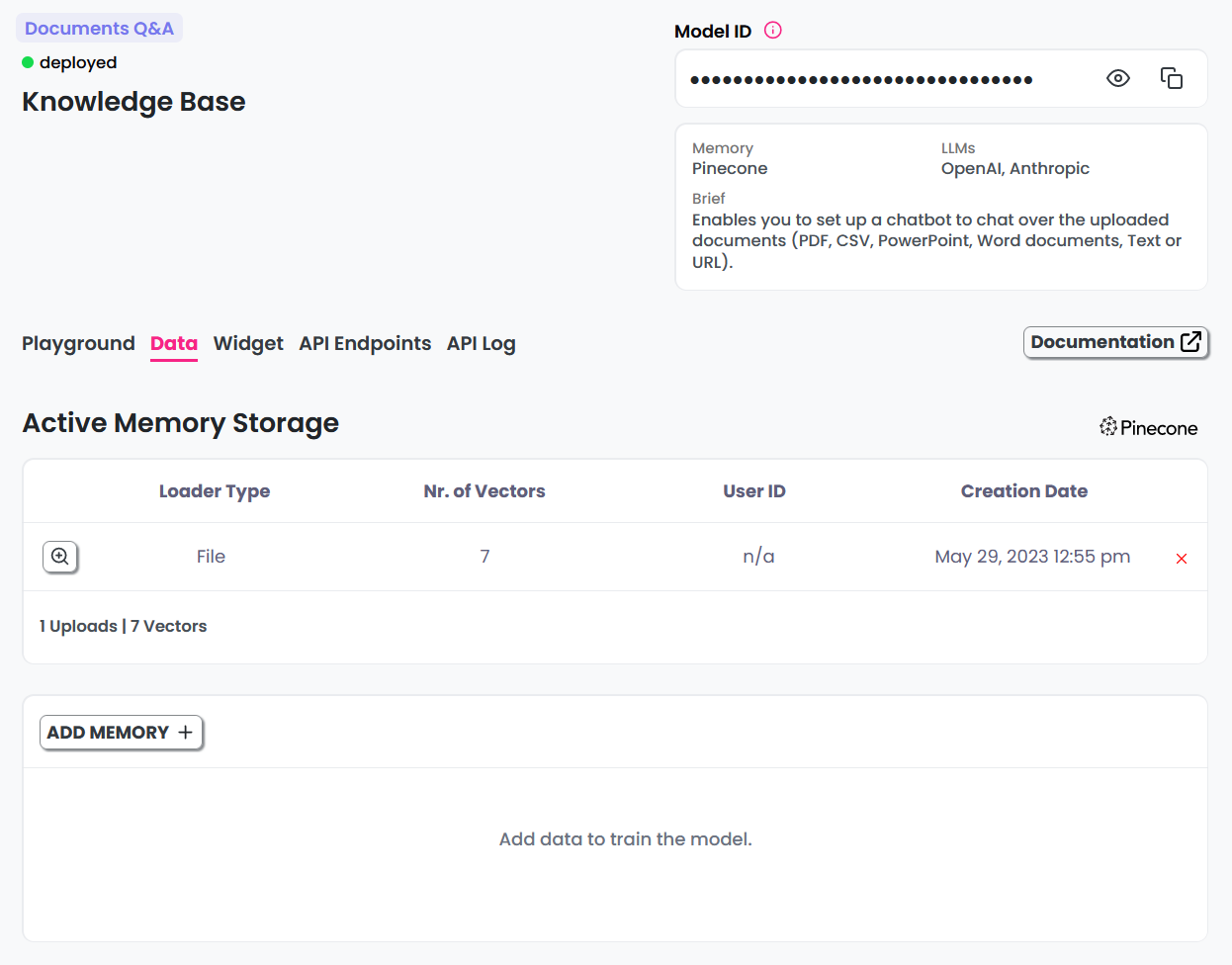
Fine-Tuner helps you build a range of AI-enabled tools. You can create AI agents using BabyAGI and AutoGPT with a no-code approach, but there are other AI tools too:
A document Q&A chatbot. You upload a collection of documents; then you can then ask questions, and the answers will be based on the data on those documents. No more file-and-folder safaris looking for that important Word file.
Embeddings, which convert your data into vector representations, making it easier to process for AI models, in case you're investing in machine learning.
Fine-tuning, which is the process of adapting a general-purpose LLM to specific tasks or knowledge domains. This is the equivalent of taking GPT-3 and training it to know how to work with your company data.
AI agent to-do list assistants
These are both in waitlist stage, so they're not easy to hop into right now. But if you sign up for the list, you'll be notified as soon as they're open.
Spellpage. Enter your to-do list in Spellpage, and its AI agent will help you figure out all the tasks you need to do to complete everything. It will also help with research and give you motivation to help you stay on track.
Do Anything Machine will help you tackle your tasks and propagate the results to Notion or Google Calendar, among other places.
AI agents for developers
You can do a lot more with AI agents if you know how to code. Here are a few starting points:
LangChain (backend for BabyAGI)
Pinecone (vector databases)
AgentGPT (for deploying agents in your browser)
The implications of AI agents
The possibilities here are astonishing, but what happens if and when AI agents start spreading into every part of our lives? Can we trust this technology to assume more critical tasks in the future?
There are no clear answers yet, as all of this is still very new. Here's a roundup of the core questions floating online on this issue.
Are AI agents sentient?
While a Google employee believed that one of the company's large language models was sentient, the current consensus is that no, AI is not sentient.
Will AI agents take our jobs?
This technology will absolutely displace jobs and bring change to the market, although there's no clear vision of when and how that may happen. Human workers may be replaced by AI agents in multiple industries. At the same time, more positions for AI development and maintenance may be created, along with human-in-the-loop positions, to make sure that human decisions drive AI actions and not the other way around.
Do AI agents perpetuate bias and discrimination?
An AI model is only as impartial as the data it's been trained on—so yes, they're biased. Tackling these problems involves making changes to machine learning processes and creating datasets that represent the full spectrum of the human world and experience.
Who's to blame when an AI agent makes a mistake?
A thorny issue in ethics and law, it's still unclear who should be blamed for accidents and unintended consequences. The developers? The owners of the hardware/software? The human operator? As new legislation is created and industry guardrails are implemented, we'll be able to understand what kinds of roles AI agents can—and can't—play.
AI agents for everyone
It's hard to imagine all the possibilities and implications of AI agents down the line. Only one thing is certain: life and work will be transformed in the process.
If this field grows as fast as general AI has been growing, viable commercial AI agent platforms may hit the market very soon. They may not have as many features as their fictional counterparts, but if they start cackling maniacally, be sure to hit the off switch.
Related reading:
